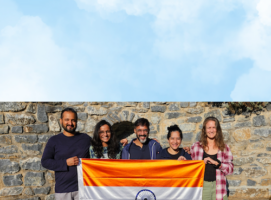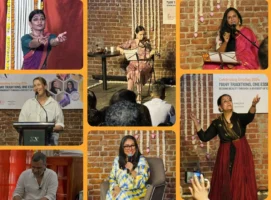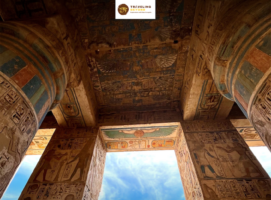Showing 256 articles
Artificial Intelligence vs. Human Intelligence: A Philosophical Perspective
Author: Yaron BarzilayFebruary 18, 2025
When writing this article, artificial intelligence (AI) has been one of the most spoken-about topics worldwide for a while, with equally mixed views of great excitement and heavy concern, as it is a significant disruptor already involved in almost every aspect of our lives. While a wide range of incredible possibilities is opening up before [...]Do You Want to Time Travel? Or the Power of Historical Fiction
Author: Gilad SommerJanuary 19, 2025
Since the early days of science fiction, man has been dreaming of building a time machine. But what if I told you time machines are accessible to everyone, and that they require even less energy than a smartphone? I am referring to books, and specifically books of historical fiction. Not only are they time machines, [...]The Lessons of Prosperity
Author: Gilad SommerNovember 2, 2024
‘No society can surely be flourishing and happy, of which the far greater part of the members are poor and miserable.’ (Adam Smith) “The best things in life aren’t things.” (Art Buchwald) The twenty-first century has provided mankind with one of its most important experiences and lessons – material prosperity is not enough for human flourishing. Like [...]Building Values of the Olympic Spirit
Author: Shruti ChopraOctober 1, 2024
Some of us from New Acropolis (India North), along with 17 other countries came together to take part in the 8-day long, Philosophical-Sports Pre-Season event in Greece. But what is a Pre-Season about? How does New Acropolis, a School of Philosophy connect with the School of Sports? What does it mean to be a Philosopher-Athlete [...]Many Traditions, One Essence: Seeking Beauty through a Diversity of Expressions (Celebrating Arts Day 2024)
Author: Manjula Nanavati (compiled by)July 8, 2024
New Acropolis, a school of practical philosophy present in over 50 countries, celebrated Arts Day 2024, in recognition of the value of art and culture in all their myriad expressions, to individuals and to societies. India North, comprising the main centre Mumbai and the Pune branch, hosted an event at each location on June 9th, [...]Travelling Beyond: Egypt Explorations with New Acropolis India
Author: Sukesh MotwaniMay 1, 2024
Part 1 – Upper Egypt. New Acropolis India’s ‘Travelling Beyond’ initiative curated its inaugural exploration, a 10-day journey to Egypt in January 2024. Led by a senior instructor on Egyptian Symbolism and a very good local Egyptologist guide, the trip immersed its 32 participants in the culture, history, mythology, and philosophy of ancient Egypt. While [...]Philosophy in Action: Victory of Light over Darkness
Author: Manjula NanavatiJanuary 23, 2024
This article consist of extracts from an event hosted to celebrate World Philosophy Day at the Main Centre of New Acropolis in Mumbai India. As part of the ongoing celebrations that New Acropolis spearheaded in over 400 centres across 50 countries, in Mumbai, New acropolis India (North) hosted a panel discussion around the theme of [...]What Can We Do To Decrease Polarization?
Author: Sabine LeitnerJanuary 21, 2024
The recent atrocities in the Middle East and the subsequent actions, reactions, comments, discussions, and demonstrations around the world have highlighted again how quickly we can become polarized in our opinions today. It is like a chain reaction: the moment one person starts to take sides for who is more deserving of sympathy and support, [...]Humanizing Medicine: In Conversation with Dr. Farokh Udwadia
Author: The Acropolitan magazine editorial teamNovember 1, 2023
In March 2022, New Acropolis Culture Circle hosted renowned physician, author and Padma Bhushan awardee Dr. Farokh Udwadia at our Mumbai center. Dr. Udwadia has contributed to many National and International publications, and written several books, one of which is TABIYAT: Medicine and Healing in India. He has spoken out strongly about how humanizing medicine [...]Growing Nihilism Among Young People
Author: Istvan OrbanSeptember 8, 2023
Nihilism is the viewpont or belief that things and life in general are meaningless. It comes from the Latin word nihil, which means ‘nothing’. Nihilism does not accept those moral and knowledge-based values that are owned by societies. Nihilism became known in the 18th century in Europe, when German writers and philosphers discussed the negation [...]Humanity’s Relationship with Trees: A History of Climate Change
Author: Florimond KrinsSeptember 8, 2023
The notion of climate change is not as recent as it may seem. We can find its roots way back in the 15th century, a time of European explorers and ocean travels, opening new routes of communications with the Far East as well as discovering the so-called “New World”: the American continent. This continent, even [...]










